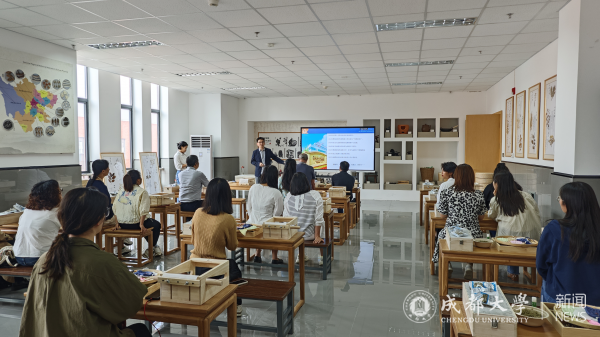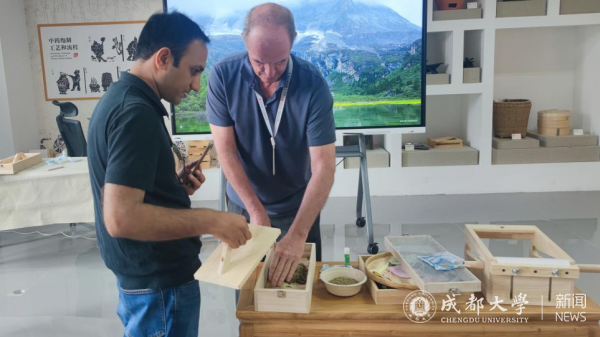On April 16, the bilingual event "Exploring the Beauty of Traditional Chinese Medicine: Chinese and Foreign Perspectives" organized by Stirling College and Medical Center, and hosted by the Clinical Medical College, Affiliated Hospital, and Traditional Chinese Medicine Cultural Promotion and Education Base, took place on campus. Chinese and foreign faculty members and students from Stirling College participated in the event.
Dr. Ge Yansen from the Affiliated Hospital presented on the topic of "Health Preservation - Following the Natural Rhythm and Making Efforts". He introduced the characteristics of the changing seasons, focusing on the adjustment of diet and lifestyle habits, prevention of summer diseases, and the traditional concept of "treating winter diseases in summer". Additionally, he elaborated in detail on how to effectively maintain health based on seasonal changes and individual constitutions. Dr. Ge emphasized the importance of health preservation and advocated harmonizing with "heaven, earth, the four seasons, and humans" and customizing personalized health preservation plans based on seasonal changes and individual bodily responses. He also reminded everyone that health preservation should not blindly follow expert advice found on the internet. Instead, it should be based on one's own constitution and practical experience in order to develop the most suitable health preservation plan.

Teachers Yan Xue and Guo Qiang from the Affiliated Hospital and the Traditional Chinese Medicine Cultural Promotion and Education Base introduced the therapeutic effects and production methods of moxa sticks, as well as over 100 herbs that can be used to make sachets. They provided detailed explanations of 9 herbs used in the activities on that day and their specific benefits. Under the guidance of the teachers, both Chinese and foreign teachers and students on-site personally made moxa sticks and herbal sachets, experiencing the charm of traditional Chinese medicine firsthand.

Liu Yaling, Secretary of the General Party Branch of Stirling College, served as the host. She introduced that this activity not only popularized traditional Chinese medicine health knowledge for participants but also built a bridge for cross-cultural exchanges and enhanced the understanding of Chinese and foreign teachers and students toward traditional Chinese medical culture. Stirling College has always been committed to prioritizing people's lives and health, closely following the Healthy China Initiative. The college will continue to organize a series of activities to allow more teachers and students to understand the wisdom and charm of Chinese civilization, tell compelling Chinese stories, and promote Chinese culture.
Dr. He Fengyi from Chengdu University of Traditional Chinese Medicine served as the on-site interpreter for the event.